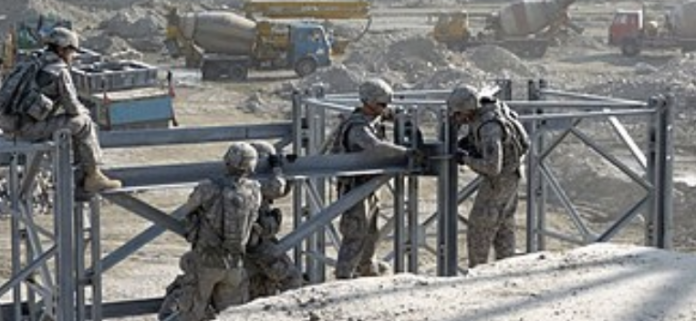Pakistan’s main border, northwestern border crossing with Afghanistan, the Torkham border, remained closed on Thursday for a 2nd day, causing a delay in trade and transportation between the neighboring countries. The closure came after a clash between security forces from Pakistan and Afghan Taliban forces, escalating tensions in the already volatile region.
The closure of the Torkham border, a crucial point of transit for goods and travelers between Pakistan and Afghanistan, followed a clash that erupted when Pakistani and Afghan Taliban forces exchanged heavy fire. The exact cause of the clash remains disputed, with Afghanistan’s interim Interior Ministry claiming that Pakistani forces initiated the fire. In contrast, Pakistani officials contend that it was sparked when Taliban forces attempted to construct a checkpoint near the border fence.
As a result of the border closure, hundreds of trucks loaded with perishable goods, including fruits and vegetables, were stranded on both sides of the border. Traders have suffered substantial losses due to the closure, and trade flow has been severely disrupted. This situation has further exacerbated tensions between the two nations, with a long history of border disputes and clashes.
In a separate incident, clashes near Pakistan’s border with Afghanistan in the Chitral district of Khyber Pakhtunkhwa province resulted in the deaths of four Pakistani soldiers and 12 militants, according to a statement by the Pakistan Army. The Pakistani Taliban, also known as TTP (Tehreek-e-Taliban Pakistan), claimed responsibility for the clashes, highlighting the ongoing security challenges in the region.
Pakistan has consistently accused Afghanistan of harboring militants who launch attacks on Pakistani soil, while Afghan authorities deny these allegations. The recent border clashes and violence near the Chitral district remind the region of continued instability despite the Afghan Taliban’s assumption of power in Afghanistan in 2021.
The closure of the Torkham border underscores the economic and humanitarian implications of the ongoing conflict, as it disrupts the flow of essential goods and hinders economic activities between the two countries. Pakistan and Afghanistan face challenges in managing their shared border, which spans over 2,600 kilometers and has been a longstanding source of tension.
Efforts to resolve the current border crisis are ongoing, with authorities from both countries working to determine the cause of the clash and find a way to de-escalate the situation. However, the closure is a stark reminder of the fragile and complex relationship between Pakistan and Afghanistan, with broader implications for regional stability.
Image is licensed under the Creative Commons Attribution 2.0 Generic license and was created by isafmedia.









